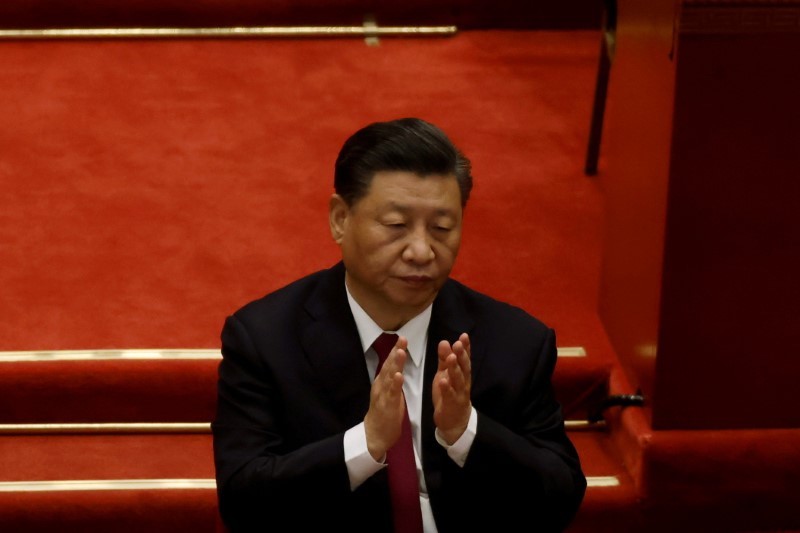China’s regulatory crackdown is a “profound revolution’’ that returns the nation to the original purpose of its ruling Communist Party as it shifts policy to prioritise socialism over capitalism, a commentary in state-run media said.
“This is a political change, and the people are becoming the main body of this change again,’’ said the commentary, widely publicised by state-media outlets. “All those who block this people-centred change will be discarded.’’
While it reiterated earlier official comments that the regulatory crackdown doesn’t mean China will kill the rich to help the poor, the commentary warned that markets ”will no longer be a paradise for capitalists.’’
The commentary follows a swingeing crackdown on everything from big tech companies to private tutoring firms, gaming, and housing prices. At its core is President Xi Jinping’s drive for so-called ‘’common prosperity,’’ a campaign to redress chronic inequality across China that is collateral damage from more than four decades of breakneck economic growth.
The regulatory storm has unnerved many investors, wiping more than $1 trillion off the value of China tech stocks. The nation’s push for ”common prosperity” to address inequality prompted Morgan Stanley to warn recently of a profound policy shift that will boost households at the expense of owners, shaping the evolution of China’s capital markets in the coming years.
Some investors see China’s sweeping regulatory crackdowns as a part of the most significant philosophical shift since former leader Deng Xiaoping set development as the ultimate priority more than 40 years ago.
“China’s media is certainly pushing the line that capitalists are in trouble while Chinese socialism is in the ascendancy,” said Andrew Collier, founder of Orient Capital Research in Hong Kong and former president of Bank of China International USA.
The commentary in state media suggested that regulators’ wrath may next turn to high housing prices and exorbitant medical costs as policymakers strive to close the income gap between the rich and poor.
“This change will bring new weather to our society,’’ the commentary said. “This is a return from the capital group to the masses of the people, and this is a transformation from capital-centered to people-centered.’’
China’s shifting policy stance would dampen corporate sentiment, increase risks for equity investors, weigh on economic growth and hurt owners, while boosting households, Morgan Stanley earlier this month.
China’s economic development has reached a critical juncture with per capita income on the cusp of crossing the high-income threshold but with the distribution of household incomes markedly uneven, Morgan Stanley Asia chief Asia economist Chetan Ahya said in a research note on August 8. That’s why Beijing is moving so quickly now to restore a long-standing goal of rebalancing the economy towards consumption, he added.
”Rebalancing towards consumption comes at a price,” said Ahya. ”A higher wage share helps households but affects the owners of capital. A declining share of corporate profits in GDP means that even with relatively high rates of GDP growth, corporate profitability in aggregate will face headwinds.”
Still, not everyone sees the shift as an overwhelming negative for investors. Over the medium to longer-term, China’s growth trajectory is not in much doubt and asset allocation to its markets is likely to continue increasing, said Geoffrey Yu, an FX and Macro Strategist for EMEA at BNY Mellon in London.
“We would heavily dispute assertions that Chinese markets now suddenly face structural reallocation risk,’’ he said. “As long as the pandemic does not worsen in the region, there is scope for a catch-up grade in Asian assets, led by China.”
Today’s commentary in China’s state media said the policy shift that’s underway was also made to cope with “the current severe and complicated international situation” and because of “savage attacks on China’’ by the US.
News and public opinion would no longer “worship Western culture,’’ it said. “Everyone can feel that a deep social change has begun,’’ it added.
•By Kevin Hamlin
ALSO ON AF: China Seen Ushering in New Era as it Puts Socialism Before Shareholders
China’s Sweeping Regulatory Crackdowns a ‘Profound Policy Shift,’ Morgan Stanley Says
This story was updated twice, each time adding comments from state media or analysts.
























